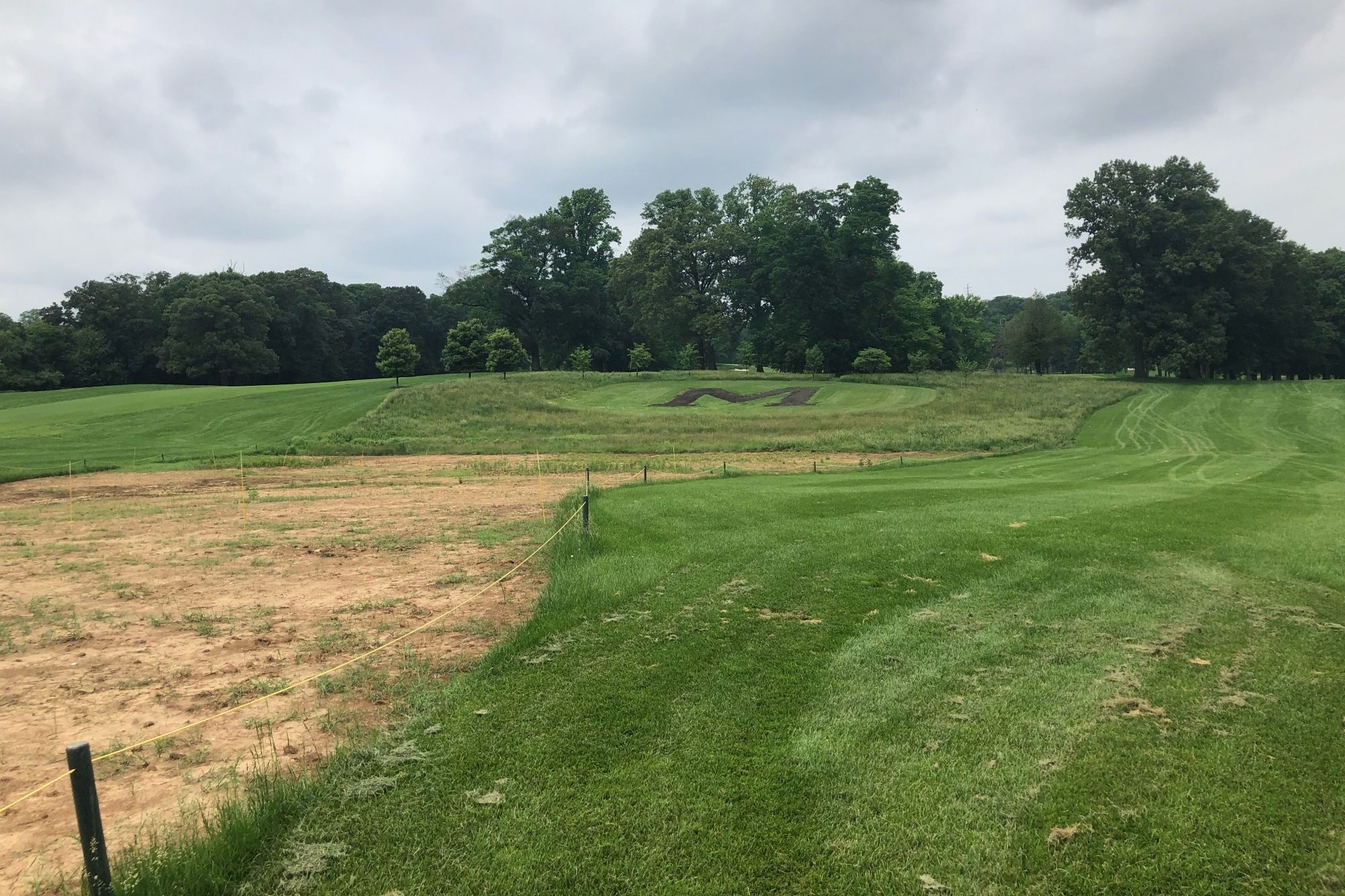Views expressed in opinion columns are the author’s own.
The arrival of spring is a good time to appreciate the open, green space on the University of Maryland’s campus. It’s also a good time to be thankful for the administration’s strong support of climate-friendly and sustainable approaches to maintaining the space. But that record is in jeopardy.
Carlo Colella, the university’s administration and finance vice president, is promoting plans to build parking lots, playing fields and a track stadium on the school’s largest green space, the University of Maryland Golf Course. These plans, which include surface parking immediately adjacent to wetlands, directly contradict the university’s commitment to environmental stewardship.
The Facilities Master Plan describes this university as a “model in innovation, consistency, and completeness of stewardship and sustainability measures.” The university’s Sustainability Council has approved recommendations to ensure sustainable water use and to protect the Anacostia Watershed, and the school’s Climate Action Plan focuses on significantly reducing its carbon footprint, in part by expanding carbon sequestration from forests on university land. In fact, the 1,250-acre campus functions as an arboretum and botanical garden, which commits it to environmental stewardship.
The university’s commitments create a healthier home and workplace for students and staff and help address climate change, water pollution and environmental degradation. For this, the university should be applauded. But the development of the golf course property would be contrary to these commitments.
The Facilities Master Plan refers to the “Golf Course District,” an approximately 301-acre property of which the golf course only 150 acres. This plan, which has been approved by the Board of Regents, does not include any of the proposed development. Instead, it commits to improving ponds and stormwater management on the property.
The course is one of the most ecologically sensitive managed courses in the state. Recently, Audubon International wrote a letter to university President Wallace Loh opposing the development plans. The organization noted that the course was certified in the Audubon Cooperative Sanctuary Program in 2003 and meets environmental certification in six areas, including water quality and wildlife habitat.
As part of its environmental stewardship, the course has planted milkweed, an essential resource for the endangered monarch butterfly. There are areas for white turtlehead flowers, the food source for the imperiled Maryland state butterfly, the Baltimore Checkerspot. As the course is a member of the “Monarchs in the Rough” program in conjunction with the Environmental Defense Fund and Audubon International, it is certified as a Monarch Waystation by Monarch Watch and a certified butterfly habitat by the North American Butterfly Association.
Recently, in recognition of its groundwater stewardship, the course became a Groundwater Guardian Green Site in partnership with the Groundwater Foundation. Likewise, it has built rain gardens in collaboration with the Anacostia Watershed Society and the Chesapeake Bay Foundation. Numerous university departments help make the property environmentally sustainable, including plant sciences, landscape architecture, entomology and environmental science and policy.
More than a dozen local, state and national environmental organizations have written to President Loh opposing plans to build parking lots and playing fields on this irreplaceable green space. No doubt the bald eagles that hunt over the property, the endangered wild blue indigo that grows at the edge of forests and the monarch butterflies that survive because of the milkweed would also oppose the plans if they had a voice.
This university has robust plans to combat climate change and to preserve the environment. It would be highly irresponsible if this university were to develop the golf course district property now and reverse its environmental commitments to its students, staff and surrounding communities.
Rob Floyd is a resident of University Park, Maryland. He can be reached at zeneft@gmail.com.



